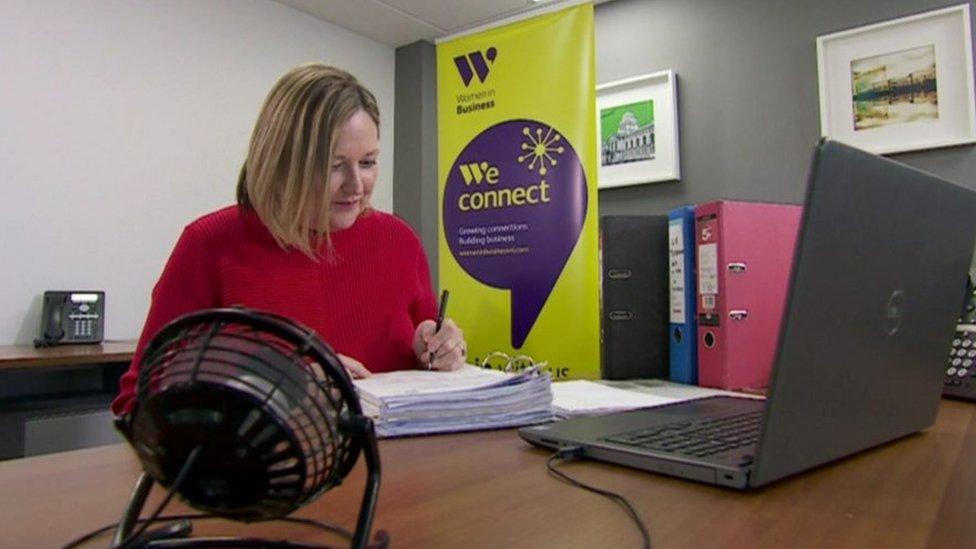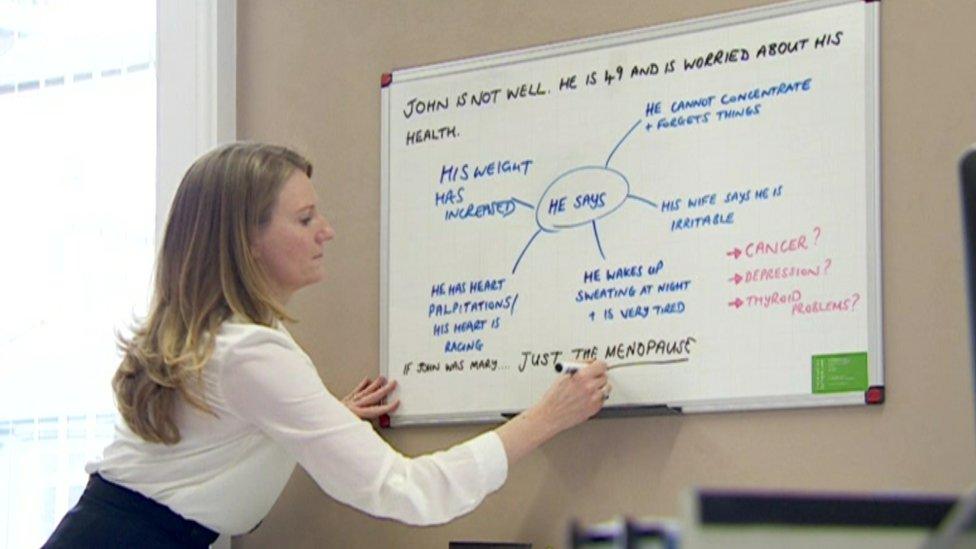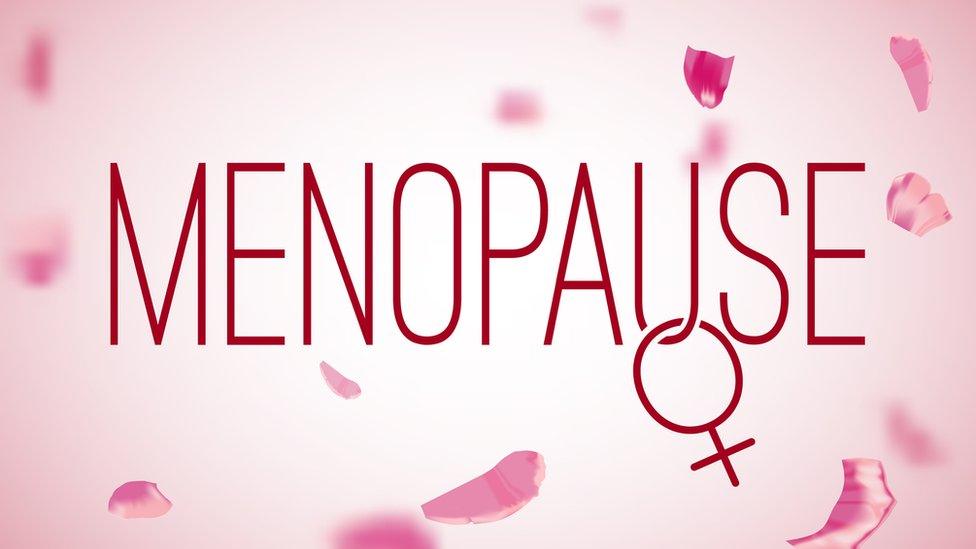Business leaders should 'speak up' about the menopause
- Published
Roseann Kelly
Women in senior roles need to "speak up" about working with the menopause.
Roseann Kelly, the chief executive of Women in Business NI, said women were "powering on through" but it needed to be addressed at work.
In Northern Ireland, women make up 50.5% of the workforce, with about 56% of females over 50 in employment.
There is no specific legislation which addresses menopause at work, but employers are obligated to look after the health and welfare of employees.
"We, as women and role models, need to speak up," said Ms Kelly.

Roseann Kelly said conversations around the menopause in work needed to take place
"I myself have sat around a boardroom table and got a hot flush.
"I would prefer people to know I am having a hot flush than for them to think that I am under pressure in my role."
Potential discrimination
Lisa Bryson, the head of employment law at Eversheds Sutherland in Belfast, said if employers fail to adequately support a woman or potentially discriminate against her because of menopausal symptoms, they could face a law suit.
"It is becoming an issue because there is case law," she said.
"Tribunals are already having to determine cases connected to menopausal symptoms.

Lisa Bryson said employers could make simple changes to make it easier for menopausal women
"A relatively recent tribunal decision in Great Britain found that a female employee had been unfairly dismissed and discriminated against on the grounds of her gender which resulted from the management of her performance.
"Although she put forward medical evidence from her GP to say her lack of concentration and her lack of confidence was directly connected to the menopause, the employer just completely ignored that.
"So there is really a new focus on this as being a big part of the occupational health landscape."
Productivity
Ms Bryson said there were straightforward adjustments that employers could make to encourage experienced staff to stay in work.
Fans could be introduced to the workplace, uniforms could be changed or flexible working may be an option if tiredness was an issue.
"Ultimately, it comes down to productivity and the bottom line," she added.
"If these women are continuing to work hard and the employer is getting the best out of their staff, then the return in retaining that mature, female staff in the workplace can't be overstated."
Ms Kelly called on employers to look at the issue.
"I think it is very much a taboo subject, particularly because we have women in senior positions and they do not want to have their positions undermined by saying 'I am not performing well today'," said the Women in Business chief executive.
"But I think we need to be able to have the conversation."

The Unison union is working with its female members to raise awareness of menopause in the workplace
Dr Liz Simpson from the School of Psychology at Ulster University is currently compiling research into the menopause and said people do not talk about it enough.
"I think it is associated with the ageing process. It signals the end of those reproductive years and we are going into old age," she said.
However, Dr Simpson believes that the issue will be discussed more openly as society changes.
"Women are having kids at 40 so potentially they could be at the school gate and having the menopause," she said.
"This is a really good opportunity to have an understanding of what's happening."
'Absolute misery'
An increasing number of employers are looking at the issue and taking advice. The union Unison recently held an information evening for female members.
Amanda Sweetlove, a health service worker, said wearing a heavy uniform could be problematic.
"I take a hot flush and sweat into the coat," she said.
"I end up in a hospital setting where it is too hot and I take my coat off, cool myself down to come back out to go to an incident.
"The sweat is still in the lining of my coat because the coat doesn't dry out so it is an absolute misery putting it on.
"Menopause is not so widely recognised in such a male-dominated environment. It's not being taken seriously just yet, but hopefully that will change as we are trying to set up a women's forum."
Deborah Yapicioz, who also works in the health service, said she once worked with a woman who gave up her job because of the menopause.
"She couldn't cope with the symptoms of the menopause and the way it affected her confidence and her ability to do her job," she said.
- Published26 April 2018

- Published25 April 2018
